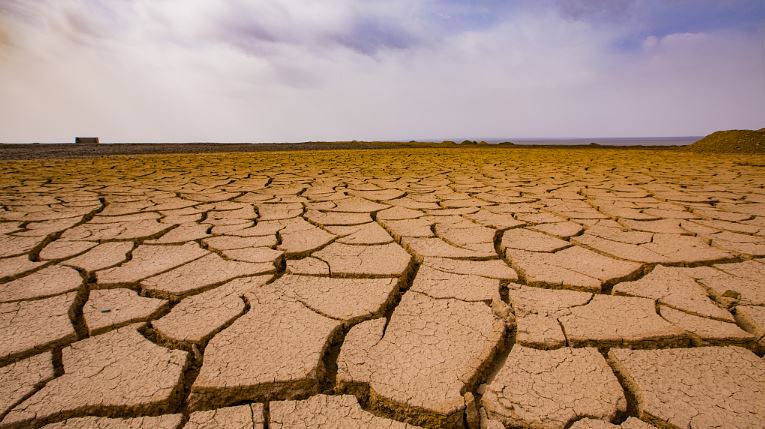
About 13 million people are faced with acute food insecurity and severe water shortages due to drought across the eastern Horn of Africa. (Photo: CGTN)
ADDIS ABABA, Feb. 23 (Xinhua) -- The United Nations World Food Program (WFP) on Wednesday said the ongoing drought is compounding impacts of multiple shocks in the Horn of Africa.
Noting that an estimated 13 million people are faced with acute food insecurity and severe water shortages due to drought across the eastern Horn of Africa, the WFP said the ongoing drought is compounding the impacts of multiple shocks, eventually complicating food insecurity.
The WFP said the ongoing drought is affecting areas of the Horn of Africa which over the past year have also been impacted by conflict, flash flooding, abnormally high food prices, desert locust infestations as well as the socio-economic implications of the COVID-19 pandemic.
"The frequent and often overlapping presence of shocks makes it harder and harder for families to recover and build resilience," the WFP said in its situation update on Wednesday.
Following three consecutive poor rainy seasons, millions of families' harvests have failed, and millions of their livestock are emaciated or dead, it said.
As of Jan. 2022, the most severely affected regions are the southern and south-eastern pastoral areas of Ethiopia, the arid and semi-arid regions of Kenya, and large swathes of south-central Somalia, according to the WFP.
The WFP further stressed that current meteorological forecasts indicate the region will experience warmer than normal temperatures over the January-March 2022 dry season.
"Should this forecast materialize, it will likely drive even higher food insecurity across the three countries," the WFP warned.
To meet the needs of drought-affected communities, WFP said it will ensure that immediate lifesaving responses are complemented by resilience-building approaches.
WFP is urgently calling for 327 million U.S. dollars to avert another major humanitarian crisis in the Horn of Africa and support almost 4.5 million people affected by the drought.
These requirements are said to be in line with the 2022 Somalia and Ethiopia Humanitarian Response Plans (HRP), as well as the Kenya Drought Flash Appeal, issued in September 2021 and extended until March 2022.
"Due to the urgent and widespread needs, it is imperative that the humanitarian community respond immediately and at scale while donors provide early, flexible, and un-earmarked funds on a 'no regrets' basis," the WFP said.
It stressed that the current rapid scale-up of assistance builds on the lessons of the 2011, 2017 and 2019 droughts, recognizing the importance of early action.
"Responding now will prevent the depletion of productive assets, the dramatic worsening of food security outcomes, and escalating levels of acute malnutrition," the WFP said.


